| Conferences > Lab-on-a-Chip and Microfluidics: Emerging Themes, Technologies and Applications "Track A" > Keynote Speakers |
| Register | Login |
Moran BercoviciAssociate Professor, Faculty of Mechanical Engineering; Head, Technion Microfluidic Technologies Laboratory, Technion, Israel Institute of Technology Moran Bercovici is an Associate Professor of Mechanical Engineering and Biomedical Engineering at Technion – Israel Institute of Technology. His lab combines experimental, analytical, and computational tools to study problems characterized by coupling between fluid mechanics, heat transfer, electric fields, chemical reactions, and biological processes. He is equally interested in understanding basic physical mechanisms and in leveraging them to create new tools and technologies across different disciplines. His current focus areas are in rapid prototyping, adaptive optics, microscale flow control, configurable microstructures, and lab-on-chip systems. Moran holds a PhD in Aeronautics and Astronautics from Stanford University, worked as postdoctoral fellow at Stanford School of Medicine, and was a Harrington Faculty Fellow at the University of Texas at Austin. He authored and co-authored over 50 articles in top peer-reviewed journals, is the inventor of more than 20 patents, and is the recipient of several awards including the EU ERC Starting Grant, and the Blavatnik Prize – considered one of the most prestigious awards to young scientists in Israel. |
Martyn BoutelleProfessor of Biomedical Sensors Engineering, Imperial College London Martyn Boutelle is Professor of Biomedical Sensors Engineering in the Department of Bioengineering, Imperial College London, and Associate Provost for Estates Planning for Imperial College. |
Hsueh-Chia ChangBayer Professor of Chemical and Biomolecular Engineering, University of Notre Dame, Interim Chief Technology Officer, Aopia Biosciences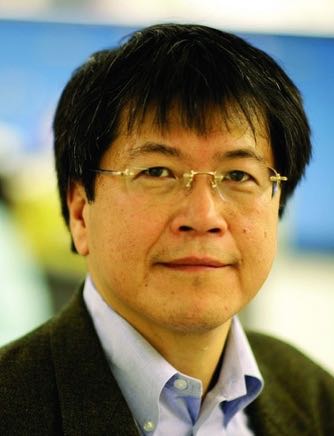 Over 300 publications, with 18,000 citations and h index of 76. He has confounded a startup Aopia Biosciences in 2020 on purification of extracellular vesicles and currently serves as its interim CTO. |
Dino Di CarloArmond and Elena Hairapetian Chair in Engineering and Medicine, Professor and Vice Chair of Bioengineering, University of California-Los Angeles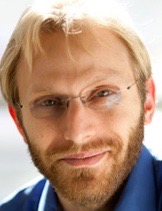 Dino Di Carlo received his B.S. in Bioengineering from the University of California, Berkeley in 2002 and received a Ph.D. in Bioengineering from the University of California, Berkeley and San Francisco in 2006. From 2006-2008 he conducted postdoctoral studies in the Center for Engineering in Medicine at Harvard Medical School. He has been on the faculty in the Department of Bioengineering at UCLA since 2008 and now as Professor of Bioengineering and Mechanical Engineering serves as the Vice Chair of the Department and as the director of the Cancer Nanotechnology Program in the Jonsson Comprehensive Cancer Center. His research pioneered the use of inertial fluid dynamic effects for the control, separation, and analysis of cells in microfluidic devices. His recent work extends into numerous other fields of biomedicine and biotechnology including directed evolution, cell analysis for rapid diagnostics, new amplified molecular assays, next generation biomaterials, and phenotypic drug screening. He has also been a leader in technology entrepreneurship: He co-founded and currently serves on the board of directors of five companies that are commercializing UCLA intellectual property developed in his lab (CytoVale, Vortex Biosciences, Tempo Therapeutics, Forcyte Biotechnologies and Ferrologix). Among other honors he received the Presidential Early Career Award for Scientists and Engineers (PECASE) and was elected a Fellow of the American Institute for Medical and Biological Engineering in 2016, was elected a Fellow of the Royal Society of Chemistry (FRSC) in 2014, was awarded the National Science Foundation (NSF) Faculty Early Career Development award and the U.S. Office of Naval Research (ONR) Young Investigator Award, the Packard Fellowship and Defense Advanced Research Projects Agency (DARPA) Young Faculty Award, and received the National Institutes of Health (NIH) Director’s New Innovator Award and Coulter Translational Research Award. |
Michael HellerProfessor, Dept Bioengineering, University of California-San Diego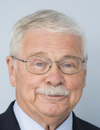 Michael J. Heller received his PhD in Biochemistry from Colorado State University in 1973. He was an NIH Postdoctoral Fellow at Northwestern University from 1973 to 1976. From 1976 to 1984 he was supervisor of the DNA Technology Group at Amoco Corporation (Standard Oil Indiana) During that time he carried out early bioengineering and recombinant DNA work on plants, algae and photosynthetic bacteria for energy and chemical production, and developed some of the first fluorescent resonant energy transfer (FRET) and chemiluminescent oligonucleotide probes for DNA hybridization analysis. He also oversaw Amoco’s sponsored energy and chemical research work at Cetus Corporation, which included the cloning of thermophilic enzymes. Dr. Heller was the Director of Molecular Biology at Molecular Biosystems, Inc., from 1984 to 1987. He was a co-founder of Integrated DNA Technologies, and served as President and Chief Operating Officer from 1987 to 1989. He was a co-found of Nanogen and served as the Chief Technical Officer from 1993 to 2001. Nanogen carried out the successful development and commercialization of electronic DNA microarray technology for clinical diagnostic genotyping applications. Dr. Heller is a Professor (Recall/Emeritus) in the Departments of Nanoengineering and Bioengineering at the University California San Diego. He is also now a Distinguished Scientist at the Oregon Health & Science University (OHSU), Center for Cancer Early Detection and Research (CEDAR), in Portland, Oregon. He has also co-founded a company called Biological Dynamics which is developing new sample to answer cancer diagnostics technology, based on the novel dielectrophoretic (DEP) technology developed at his UCSD lab. Dr. Heller has extensive industrial experience in biotechnology, biomedical and molecular diagnostic devices and nanotechnology, with particular expertise in the areas of DNA probe diagnostics, electrokinetic lab-on-a-chip devices, DNA synthesis, FRET/fluorescent-based detection technologies and electric field assisted self-assembly of DNA nanostructures. Dr. Heller has over 100 publications and 56 issued US patents. |
Roger KammCecil and Ida Green Distinguished Professor of Biological and Mechanical Engineering, Massachusetts Institute of Technology (MIT) Kamm is currently the Cecil and Ida Green Distinguished Professor of Biological and Mechanical Engineering at MIT, where he has served on the faculty since 1978. Kamm has long been instrumental in developing research activities at the interface of biology and mechanics, formerly in cell and molecular mechanics, and now in engineered living systems. Current interests are in developing models of healthy and diseased organ function using microfluidic technologies, with a focus on vascularization. Kamm has fostered biomechanics as Chair of the US National Committee on Biomechanics (2006-2009) and of the World Council on Biomechanics (2006-2010). Kamm currently directs the NSF Science and Technology Center on Emergent Behaviors of Integrated Cellular Systems. He is the 2010 recipient of the ASME Lissner Medal (American Society of Mechanical Engineering) and the 2015 recipient of the Huiskes Medal (European Society of Biomechanics), both for lifetime achievements, and is the inaugural recipient of the ASME Nerem Medal for mentoring and education. He was elected to the National Academy of Medicine in 2010. Kamm is co-founder of two companies, Cardiovascular Technologies and AIM Biotech, a manufacturer of microfluidic systems for 3D culture. |
Chwee Teck LimNUS Society Chair Professor, Department of Biomedical Engineering, Institute for Health Innovation & Technology (iHealthtech), Mechanobiology Institute, National University of Singapore Professor Chwee Teck LIM is the NUS Society Chair Professor of Biomedical Engineering and Director of the Institute for Health Innovation and Technology at the National University of Singapore. His research interest is in the development of microfluidic technologies for applications in disease diagnosis and health monitoring. He has co-authored over 470 journal publications and is also a serial entrepreneur having started six companies. Prof Lim is an Elected Fellow of seven academies including the US National Academy of Inventors, IUPESM, AIMBE, IAMBE, AAET, among others. He and his team have garnered numerous research awards and honours including Asia’s Most Influential Scientist, Highly Cited Researcher, Asian Scientists 100, Wall Street Journal Asian Innovation Award (Gold) and the President's Technology Award among others. |
John McDevittChair, Department Biomaterials, New York University College of Dentistry Bioengineering Institute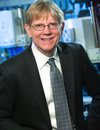 John T. McDevitt serves as the Chair for the Department Biomaterials at New York University College of Dentistry, is a member of NYU’s Bioengineering Institute and participates as a faculty member in the NYU Department of Chemical and Biomolecular Engineering within the Tandon School of Engineering. McDevitt is a pioneer in the development of ‘programmable bio-nano-chip’ technologies. He has a strong track record of translating essential bioscience discoveries into real-world clinical practice. In this capacity, he serves as the Scientific Founder for three diagnostic companies. His most recent company, SensoDx, features a universal platform sensor technology with capacity to digitize biological signatures for a broad range of key health conditions. McDevitt and his team has raised over $45M in Federal and Foundation support. His recent research has been sponsored by major programs funded by the National Institute of Dental and Craniofacial Research (NIDCR) division of the National Institutes of Health (NIH), the Bill and Melinda Gates Foundation, Cancer Prevention Research Institute of Texas (CPRIT), the National Aeronautics and Space Administration (NASA), the Army and the United Kingdom’s Home Office Scientific Development Branch. |
Arben MerkoçiICREA Professor and Director of the Nanobioelectronics & Biosensors Group, Institut Català de Nanociencia i Nanotecnologia (ICN2), Barcelona Institute of Science and Technology (BIST)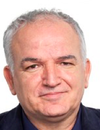 Arben Merkoçi is currently ICREA Professor and director of the Nanobioelectronics & Biosensors Group at Institut Català de Nanociencia i Nanotecnologia (ICN2), part of Barcelona Institute of Science and Technology (BIST). After his PhD (1991) at Tirana University (Albania), in the topic of Ion-Selective-Electrodes (ISEs) Dr. Merkoçi worked as postdoc and senior researcher/invited professor in the field of nanobiosensors and lab-on-a-chip technologies in Italy, Spain, USA and since 2006 at ICN2. Prof. Merkoçi research is focused on the design and application of cutting edge nanotechnology and nanoscience based cost/efficient biosensors. The paper/plastic-based nanobiosensors involve integration of biological molecules (DNA, antibodies, cells and enzymes) and other (bio)receptors with micro- and nanostructures/motors and applied in diagnostics, environmental monitoring or safety and security. He has published around 300 peer review research papers (H index: 61 WOS; 79 GS), supervised 30 PhD students and has been invited to give plenary lectures and keynote speeches in around 200 occasions in various countries. Prof. Merkoçi is Co-Editor In Chief of Biosensors and Bioelectronics and member of Editorial Board of other journals. He is co-founder of two spin-off companies, PaperDrop dedicated to nanodiagnostics and GraphenicaLab to electronic printing. See more details on his CV at: https://www.icrea.cat/security/files/researchers/files-maintenance/full_cv_amerkoci_0.pdf |
Steve SoperFoundation Distinguished Professor, Director, Center of BioModular Multi-Scale System for Precision Medicine, The University of Kansas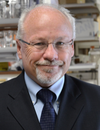 Prof. Soper is currently a Foundation Distinguished Professor in Chemistry and Mechanical Engineering at the University of Kansas, Lawrence. Prof. Soper also holds an appointment at Ulsan National Institute of Science and Technology in Ulsan, South Korea, where he is a World Class University Professor. He is also serving as a Science Advisor for a number of major worldwide companies. Prof. Soper is currently on the Editorial Board for Scientific Reports and Journal of Micro- and Nanosystems. |
Bernhard WeiglDirector, Center for In-Vitro Diagnostics, Intellectual Ventures/Global Good-Bill Gates Venture Fund Dr. Bernhard H Weigl is the Director of the Center for In-Vitro Diagnostics at Intellectual Ventures/Global Good (IV/GG) and an Affiliate Professor at the University of Washington, Department of Bioengineering. The Global Good unit of Intellectual Ventures is directly funded by Bill Gates. |
Paul YagerProfessor, Department of Bioengineering, University of Washington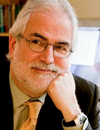 Paul Yager is the Professor in the Department of Bioengineering at the University of Washington, Seattle. Professor Yager served as the The Hunter and Dorothy Simpson Endowed Chair, Department of Bioengineering from 2008-2013. Professor Yager's research focuses on microfluidics and its applications in global health. |




